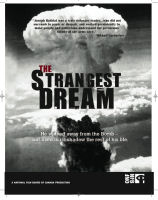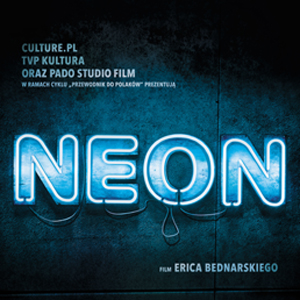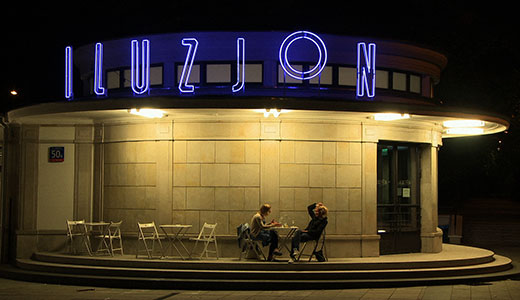The Strangest Dream
Directed by Eric Bednarski
Canada, 2008 – 90 minutes
Produced by the National Film Board of Canada
NEW YORK – What delighted me about Poland in the Rockies is that people temporarily disrobed of their public selves and came to a small mountain town to meet as equals. You might be deep in a conversation about Chekhov and the bittersweet before you piece together who your fellow late-night intellectuals are. Attendees and speakers alike had their hidden gems – art projects, poems, compelling life stories – and you never quite knew when you would uncover a treasure. This was particularly true of an unassuming young man who minded his own way along the 2008 group outskirts with a wry smile and a camera glued to his face.
Eric Bednarski surprised us with two documentaries – one about a relative who survived one of the Holocaust’s most infamous death camps, Postcard from Auschwitz, and another about the uses of architecture as propaganda in a neighbourhood in Warsaw, MDM. When asked at PitR 2008 about any present projects, Eric, would respond, “oh, nothing really, just something I’m tweaking,” with a faraway look in his eye. But now the secret is out: Eric made his feature-length debut at the Atlantic Film Festival one Sunday afternoon in September.
“The Strangest Dream”, directed by Bednarski and produced by the National Film Board of Canada, is about Polish-born Nobel Laureate, Joseph Rotblat. Rotblat was the only nuclear physicist working on the Manhattan Project, codename for the development of the first atomic bomb, to leave on moral grounds. He then dedicated himself to the peaceful application of atomic research, focusing on the medical and biological uses of radiation, and began lobbying states and educating the public about the threat of atomic warfare and the long-term dangers of radioactive fallout. The youngest signatory on the Einstein-Russell Manifesto of 1955, Rotblat was an outspoken critic of the nuclear arms race and went on with Betrand Russell to found the Pugwash Conferences, an international organization which campaigns for the end of nuclear proliferation. It is with this organization that he shares the Nobel Prize, awarded in 1995.
Bednarski gives a moving account both of the legend and the man behind. Tying in rare footage from state archives and Rotblat family home videos, Eric’s camera pans across barren Los Alamos plains and the Hiroshima Peace Memorial, from the paper-piled-high London office of Rotblat to a country home in the small village of Pugwash. Through its lens we’re told a story of global consequences, as relevant today as it was 50 years ago: that nuclear proliferation remains a common threat to humanity and that if the world wants peace, it should prepare for peace. Little surprise it premiered to a standing ovation in Halifax. It screens in London on the 9th of December.
So next time you ask Eric Bednarski what he’s up to and he ho-hums, “oh, nothing, nothing much at all,” watch him. Watch him closely.
CR



